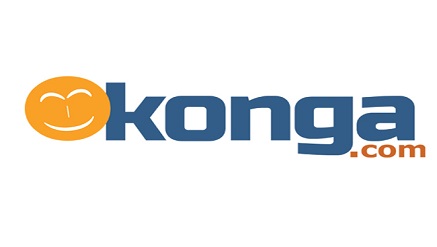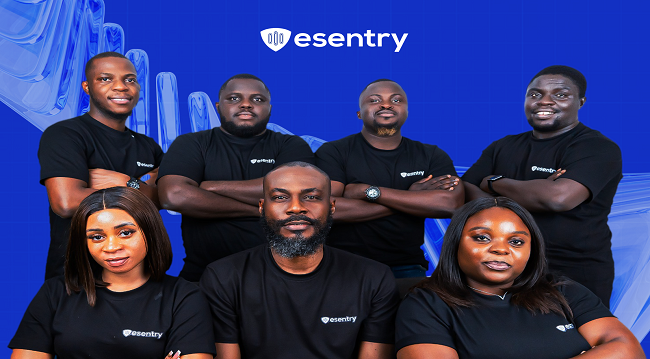E-Business
Konga at OAU, Search for Software Developers

Konga.com, has shown its strategic commitment to raising emerging leaders in the tech community by organizing the first ever Konga Software Developers Hackathon to pick the best among the best among students of Obafemi Awolowo University.
The event had a turnout of over 50 brilliant students from Computer Engineering, Electrical & Electronics Engineering and Computer Science between 300 level and 500 level, all having the passion to code.
Within 7 hours, these students teamed up to build various solutions around e-commerce and came up with various applications for crowd sourcing, distributed warehousing, ability to try out fashion items virtually before you buy etc.
From the 16 teams (with very creative names), the winning team, Echelon came up with a logistics solution while the team that came 2nd place – Team 47 developed a solution where you can try out a fashion item virtually to see how it fits before you buy.
The Hackathon has team Echelon comprising of 4 students winning our prize of N75,000 as well as the opportunity to work with Konga.
Oyewale Ademola, group leader for Team Echelon said “We decided to develop an Inventory Management System with reverse logistics software due to the problem inherent in that sector. Thanks to Konga for giving us an opportunity to express ourselves.”
Team 47’s team leader, Damola Adeniran said “Thanks to Konga for giving us a platform to develop a software which generates a 3-D model from the user’s picture to try on clothing materials they want to purchase from an online mall.”
Dr. Babajide Afolabi, vice dean, Division of Students Affairs, ObafemiAwolowo University said, “This type of collaboration is a critical component of efficient national innovation. What Konga is doing by gainfully engaging our students is a welcome partnership because Konga is contributing immensely to the development of technology and we are glad our students are beneficiary of this great initiative.”
Andrew Mori, the Director of Technology Konga Online Shopping Ltd said “The enthusiasm displayed by software developers who participated at the Hackathon is quite encouraging and Konga provides the right environment for them to learn and release their innate creative skills being the breeding ground for the best software developers in Nigeria.”
Ike Oluwa Akinbami, vice president, People Engagement of Konga Online Shopping Limited, said “This first ever Hackathonis in line with Konga’s drive in seeking out the best talents and empowering them to succeed as we strive to contribute our quota to the tech community.”
The Hackathon is Konga’s way of fulfilling the potential of developers by enlarging their capabilities and this necessarily implies their empowerment, enabling them to participate actively in their own development.
Konga which has been listed as one of the Great Place to Work in Nigeria is passionate about the development of human capital that can serve our industry effectively.
Having no doubt that we stand on the brink of a technological revolution that will fundamentally alter the way we live, work, and relate to one another, Konga is excited to be involved with building the community of developers and will be focusing more on this going forward.
E-Business
Kaspersky Discovers New Phishing Campaign Exploiting Google Tasks Notifications to Steal Corporate Credentials

Kaspersky has uncovered a new phishing scheme that abuses legitimate Google Tasks notifications to trick corporate users into revealing corporate login credentials.

By leveraging Google’s trusted @google.com email domain and notification system, attackers bypass traditional email security filters and exploit users’ trust in familiar services.
In this campaign, victims receive an authentic-looking notification from Google Tasks with the subject line “You have a new task.” The message creates the illusion that the recipient’s company has adopted Google’s task management tool, pressuring them to act quickly. The notification often includes elements of urgency, such as a high-priority flag and a tight deadline, to prompt the victim’s immediate response.
Upon clicking the embedded link, users are directed to a fraudulent form disguised as an “employee verification” page, where they are asked to enter their corporate credentials under the pretense of confirming their status. These stolen credentials can then be used for unauthorised access to company systems, data theft, or further attacks.
“Google’s vast ecosystem of services gets exploited by scammers. The scheme with Google Tasks is part of a broader trend observed before and continuing into 2026, where cybercriminals misuse legitimate platforms to distribute scams and phishing.
Notifications originating from legitimate domains naturally evade many spam and phishing filters, while the social engineering aspect – making it seem like an internal company process – lowers the victim’s guard,” comments Roman Dedenok, Anti-Spam Expert at Kaspersky.
E-Business
esentry 2025 Report Shows Healthcare, Financial Services and Telecoms as Staging Grounds for Increased Cyberattacks in Africa

Cyber adversaries targeting African organisations are increasingly shifting away from opportunistic attacks toward deliberate, sector-specific campaigns aimed at the continent’s most critical digital infrastructures, according to the esentry 2025 Annual Report released by esentry, Lagos-based Africa’s leading indigenous Managed Security Service Provider (MSSP).

The report identifies healthcare, financial services, and telecommunications as the primary staging grounds for high-velocity cyberattacks, reflecting a growing focus on sectors that underpin economic stability, public welfare, and digital connectivity across Africa.
The findings are drawn from one of the largest cybersecurity datasets analysed in the region. Over the course of 2025, esentry processed more than 31 billion security events, generating 3.5 million alerts and successfully blocking over 15,000 malicious attempts. This monitoring scale shows that, while traditional financial institutions remain a core target, the threat landscape has expanded to include digital lending platforms, healthcare systems that store sensitive personal data, and telecom operators responsible for national and regional connectivity.
Within the healthcare sector, the report highlights ransomware as the most acute risk, with attackers frequently exploiting exposed Remote Desktop Protocol (RDP) services to compromise patient data and disrupt essential medical operations. In financial services, organisations are facing a surge in credential abuse, insider-related threats, and info-stealer malware designed to enable fraud and unauthorised access. Telecommunications providers are increasingly targeted by highly tailored phishing campaigns and attacks on exposed web services, which aim to harvest credentials and compromise customer data.
Commenting on the findings, Gbolabo Awelewa, Chief Business Officer at esentry, said the nature of cyber threats across Africa has evolved significantly. “The threats we are seeing today are deliberate, informed, and carefully tailored to local enterprises. Attackers are exploiting trusted access and moving quietly within networks, which makes early detection critical. Our coordinated cybersecurity model, spanning Defence, Intelligence, Offence, and Security Engineering, allows us to combine scale, speed, and deep contextual insight to detect and neutralise threats before they escalate,” Awelewa said.
A defining trend identified in the report is the shift from overt system exploitation to the abuse of legitimate access. By leveraging compromised credentials and ‘living-off-the-land’ techniques, attackers can blend into routine enterprise operations and significantly delay detection. This approach has compressed the attack lifecycle, enabling adversaries to move from initial access to full operational impact in fewer than 15 days.
To counter this acceleration, the report emphasises the importance of early detection and automated response. esentry says it currently contains low-complexity incidents in under 90 seconds, using a combination of structured threat hunting and centralised telemetry to anticipate and absorb attacker pressure rather than reacting after damage has occurred.
As African organisations continue to digitise, the esentry 2025 Annual Report positions itself as a critical reference point for understanding the continent’s evolving cyber threat environment. The report concludes that protecting Africa’s digital trust will require a shift away from fragmented security tools toward disciplined, coordinated defence frameworks, what esentry describes as a unified Phalanx formation.
E-Business
AfDB, UNDP Launch $10Bn AI Initiative for Africa

The African Development Bank Group (AfDB) and the United Nations Development Programme (UNDP) have launched an ambitious $10 billion project to support the adoption of Artificial Intelligence (AI) across the continent.

The 10 Billion Initiative intends to accelerate ethical AI adoption and inclusive digital economic growth in Africa.
The initiative follows the Nairobi AI Forum, which took place earlier this month in Kenya and brought together governments, private sector leaders, development partners, and tech innovators to define pathways for impactful AI adoption.
According to the organisations, the strategy is a co-designed collaboration between the Bank Group, UNDP, and commercial partners that aims to raise up to $10 billion by 2035.
The resources will be used to create up to 40 million new jobs across the continent by 2035, through targeted investments that provide the groundwork for AI and accelerate widespread adoption in everything from entrepreneurship and regional data infrastructure to policy frameworks and skill development.
Nicholas Williams, AfDB Group ICT operations division manager, commented: “As a leading multilateral development institution, the bank is leveraging its comparative advantage to ensure Africa is not left behind in the AI era.
“The AI 10 Billion Initiative paves the way for expanded partnerships and sustained investments that will accelerate AI entrepreneurship, strengthen data and infrastructure ecosystems, and support inclusive growth across the continent.”

 General News3 days ago
General News3 days agoMore 14m Farmers to Benefit from AfDB-backed Initiative

 Telecom3 days ago
Telecom3 days agoMTN Nigeria Posts Record N1.70 Trillion Pre‑Tax Profit, Declares N20 Dividend for 2025

 Telecom3 days ago
Telecom3 days agoDimension Data Nigeria Secures ₦20Billion Funding to Strengthen Digital Infrastructure

 News3 days ago
News3 days agoGalaxy Backbone Confirms Over 150,000 Active Official Government Email Accounts, Clarifies Status of GOVMAIL

 Telecom3 days ago
Telecom3 days agoAlerzo Liquidates Delivery Fleet as N4.38bn Moniepoint Loan Row Deepens

 General News3 days ago
General News3 days agoNewmark Webinar Explores How AI Could Transform Healthcare in Africa

 General News15 hours ago
General News15 hours agoSERAP Asks FCCPC to Investigate Google, Meta, Others over Alleged Rights Abuses

 E-Financial14 hours ago
E-Financial14 hours agoIran-Israel-US Conflict and CBN’s FX Gains: A Stress Test for Nigeria’s Monetary Stability













